LVIV, Ukraine — Before the church bells had a chance to toll and announce Easter Sunday, air raid sirens woke those sleeping in the western Ukrainian city of Lviv just before 6 a.m.
But those celebrating the holiday that emphasizes resurrection and new beginnings did not let it dampen their spirits.
While members of the Orthodox Church in Ukraine will celebrate Easter next Sunday, at Lviv’s Roman Catholic Cathedral Basilica of the Assumption, the Easter service was well-attended this week.
The 14th-century building shows all the signs of a city and country at war: Sandbags are strategically placed around the exterior, the marble figures inside and outside the cathedral are swathed in bubble wrap and long textile sheets, steel cages surround the outdoor statues and tin sheets and steel slats block the stained-glass windows.
Hours after the all-clear from the air-raid siren and shortly before the service, light show producer Petro Popovych, 56, dutifully climbed the bell tower with a handful of other male parishioners to artfully clang the bells and announce the start of the service hundreds of feet below.
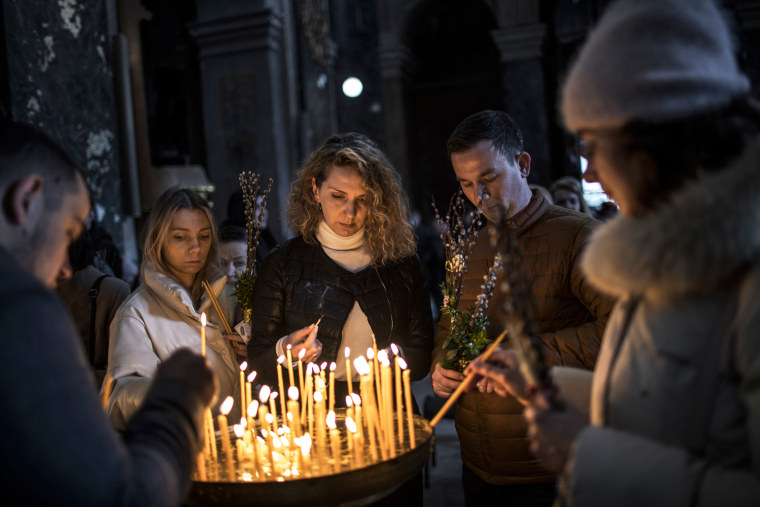
Often they ring the bells at 6 p.m. to call for the end of the war, but on Easter morning the emphasis is on soothing a population on edge.
For some of those affected by this war, religion has become a refuge, and the collective hope is that this holiday is the beginning of more promising and peaceful days ahead.
“We toll the bell now because we believe in the healing powers in the sound that it emits,” Popovych said after spending 20 minutes with the other men yanking thick ropes to ring the three bells of different sizes. “To many people here, Easter is the breaking point between all the misfortunes that happened in the past and all the bright future that is to come after this holiday.”
Sezhiy Bei, 33, an ecologist and web developer who also serves as a bell ringer at the cathedral, said last week’s sinking of the Moskva, Russia’s flagship in the Black Sea, foreshadowed that Easter would bring Ukraine happier days after nearly two months of war.
“The Moskva helped start the war at Snake Island,” Bei said, referring to the now famous incident in which Ukrainian soldiers were forced to surrender in the early days of Russia’s invasion. “Now it’s defeated — it’s sunken — and it feels as though every Ukrainian just received $1,000. This is how ecstatic we feel.”
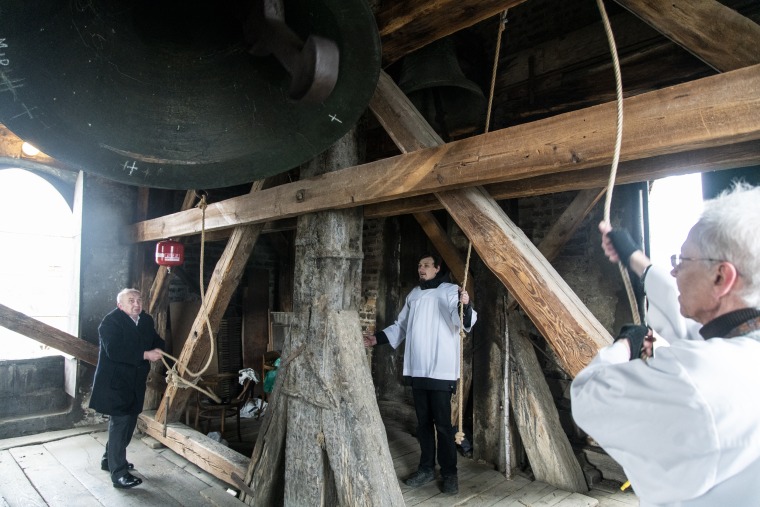
But not all Ukrainians shared Bei’s optimism.
Since Russia invaded Ukraine on Feb. 24, more than 4 million Ukrainians have been forced to flee the country, and 6.5 million inside the country have been displaced.
For many, that means leaving family and loved ones behind. Women and children make up the vast majority of refugees, seeking safety in bordering countries such as Poland and Moldova. Ukrainian men ages 18 to 60 have been banned from leaving the country in case they are needed to fight.
Tetyana Gorshunova, 40, said that normally this time of year she would be baking Easter cakes, painting eggs with her two young kids and heading to midnight mass with her husband in the southern Ukrainian city of Mykolaiv.
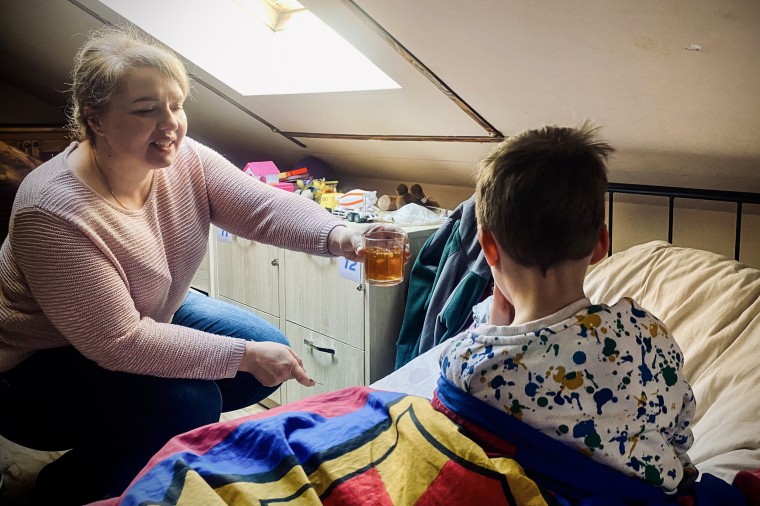
Currently sharing a room in the Polish capital of Warsaw with three other families in an old factory building that was turned into dorms for homeless men, she said she worried that this Easter would be the first of many holidays overshadowed by war.
“It is so hard and difficult to be away from home,” she said.
Gorshunova said that their apartment in Mykolaiv had been destroyed and she had been unable to get hold of her parents, who stayed behind at their own home in the city. She added that she had also been unable to reach her husband, who is fighting on the frontlines.
“It is awful and painful,” she said. “I don’t know what going home means anymore.”
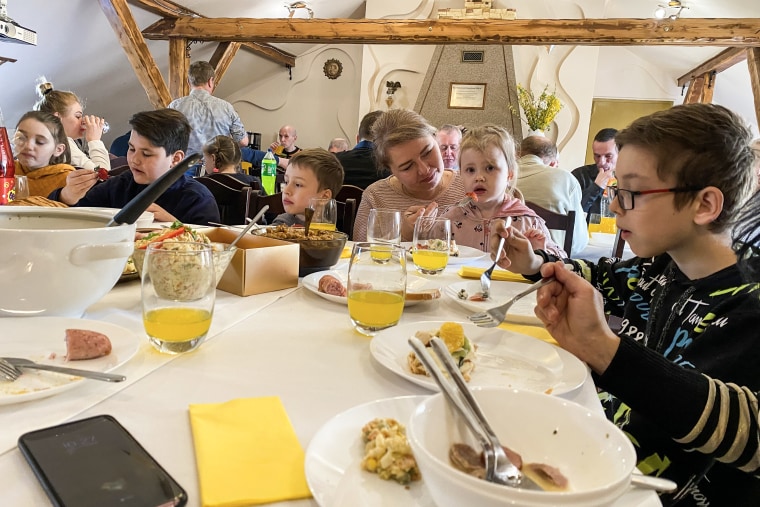
On Sunday morning, the shelter where Gorshunova is staying organized an Easter breakfast. Mothers and their children passed around traditional dishes such as żurek, a rich white soup, and bigos, a meat and cabbage stew.
As most Ukrainians are Orthodox Christians and celebrate Easter on April 24, Adriana Porowska, a Polish social worker who organized the breakfast, joked that they could all celebrate Easter twice.
“It’s good we can be together. It is better than sitting alone,” she said. “And we’re happy we can have a second Easter and do this all again next week.”
Phil McCausland reported from Lviv, Ukraine. Lauren Egan reported from Warsaw, Poland.

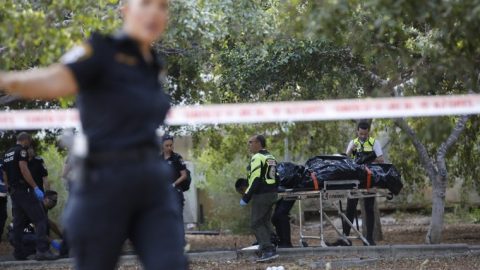

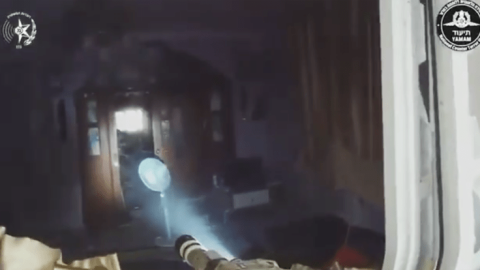
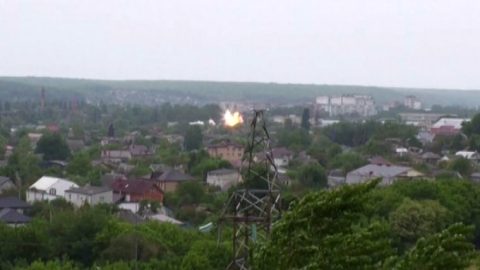
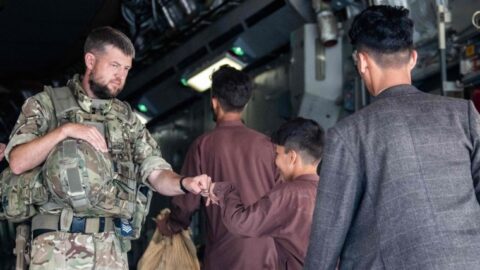

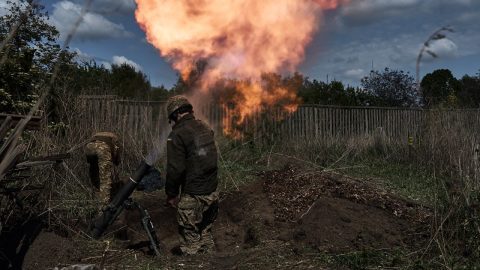
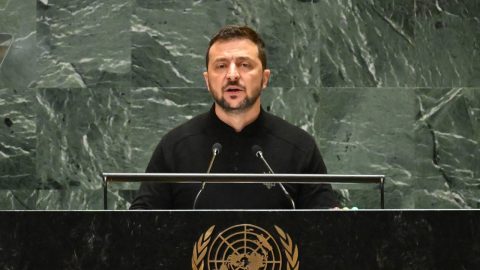
Recent Comments